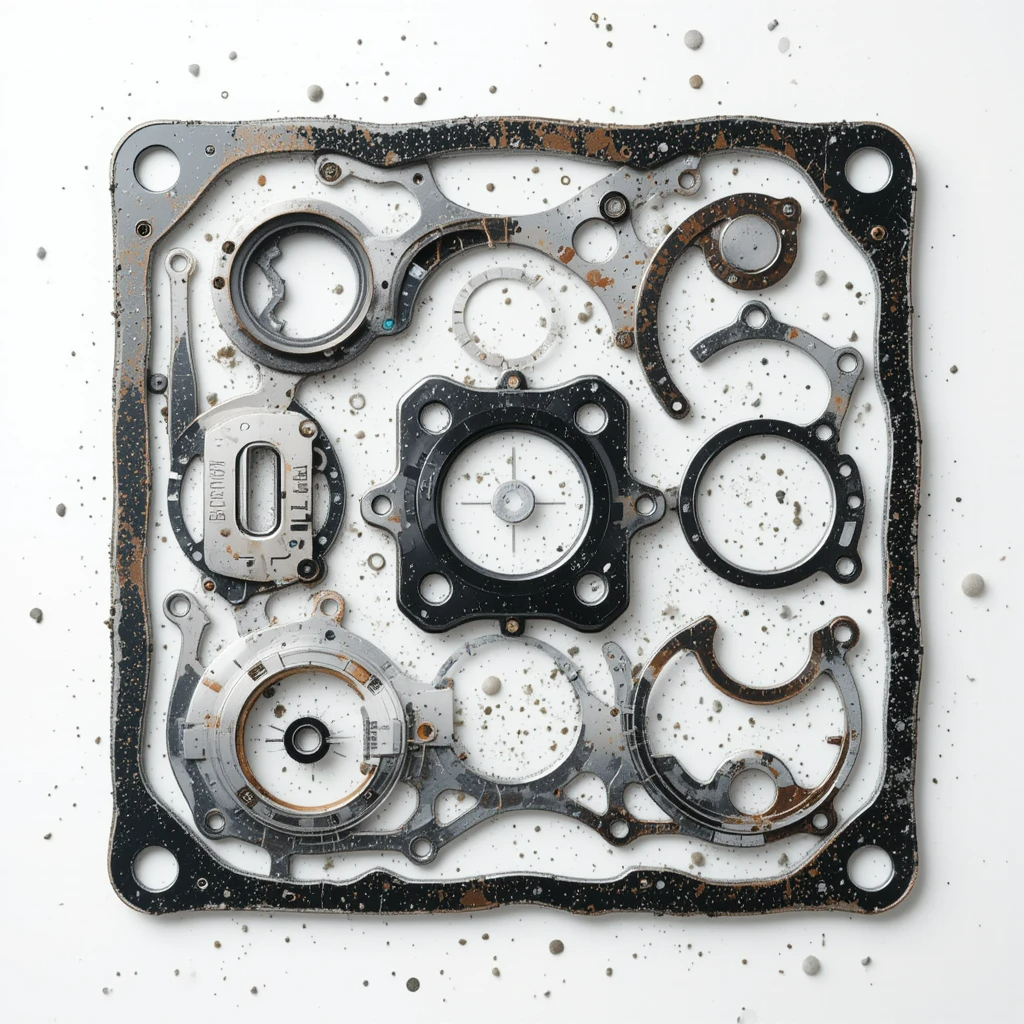Custom gaskets
Silicone Gaskets Parameters: Key Properties and Performance Factors
Introduction 
Silicone gaskets are widely used across industries such as automotive, aerospace, medical, electronics, and food processing. Known for their excellent thermal and chemical resistance, these gaskets serve critical sealing functions. Understanding silicone gaskets parameters is essential for engineers, procurement professionals, and OEMs to ensure reliable performance in demanding applications.
What Are Silicone Gaskets? 
Silicone gaskets are sealing components made from silicone rubber—a flexible, durable, and heat-resistant elastomer. These gaskets prevent leakage of fluids or gases between two surfaces and are commonly used in environments with extreme temperatures or harsh chemicals.
Key Silicone Gaskets Parameters 
When selecting a silicone gasket, it’s important to evaluate the following technical parameters:
1. Temperature Resistance
- Operating Range: –60°C to +230°C (–76°F to +446°F)
- High-Performance Grades: Up to 300°C (572°F)
- Silicone’s ability to withstand extreme temperature variations makes it ideal for aerospace and industrial applications.
2. Hardness (Durometer)
- Measured in Shore A: Typically ranges from 30 to 80 Shore A
- Softer gaskets (30–50 Shore A) offer better compressibility, while harder types (60–80 Shore A) are more rigid and abrasion-resistant.
3. Compression Set
- Indicates how well a gasket returns to its original shape after compression.
- Typical Value: <25% at room temperature; lower values indicate better long-term sealing under pressure.
4. Tensile Strength
- Measured in MPa (MegaPascals): Typically ranges from 6 to 10 MPa
- Higher tensile strength gaskets are more durable and resistant to tearing under stress.
5. Elongation at Break
- Refers to the stretchability of silicone before it breaks.
- Common Range: 200% to 700%
- Important in dynamic sealing applications where flexibility is key.
6. Thermal Conductivity
- Average Range: 0.2 – 0.3 W/m·K
- While silicone is not highly conductive, specialized formulations can enhance heat transfer properties for electronics.
7. Electrical Insulation
- Excellent electrical insulator with dielectric strength around 20–25 kV/mm
- Ideal for use in electronic housings, enclosures, and circuit board protection.
8. Chemical Resistance
- Resistant to:
- Water
- Ozone
- UV radiation
- Mild acids and bases
- Not recommended for strong acids, hydrocarbons, or ketones unless specially formulated.
Custom Silicone Gasket Options
Many manufacturers offer custom silicone gaskets tailored to unique requirements. Customization options include:
- FDA-approved or medical-grade silicone
- Flame-retardant formulations (UL 94 V-0)
- Conductive silicone for EMI/RFI shielding
- Closed-cell silicone sponge for lightweight sealing
Applications of Silicone Gaskets
- Automotive: Engine seals, lighting systems, HVAC
- Aerospace: Aircraft cabins, fuel systems, and electronics
- Medical Devices: Sterile seals, diagnostic equipment
- Electronics: Waterproof and dustproof enclosures
- Food & Beverage: Sanitary seals, baking and oven equipment
Final Thoughts
Understanding silicone gaskets parameters such as hardness, temperature range, tensile strength, and chemical resistance is crucial when choosing the right gasket for your application. By considering these performance factors, you can ensure long-lasting, efficient sealing in even the harshest environments.

